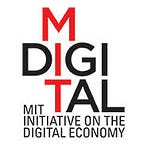Regional Winners Named for the Inclusive Innovation Challenge
Twenty IIC winners from around the globe have been chosen to vie for $1 million at MIT on November 8
The 2018 Inclusive Innovation Challenge (IIC) Winners from Latin America, Asia, Africa, Europe, and North America have all been announced! From more than 1,500 global registrants, in-region experts chose these winners at five regional celebrations. These entrepreneurs exemplify working, scalable solutions that harness technology to include more people in the digital economy and broaden economic opportunity.
Over the past two months, regional celebrations have taken place in Latin America, August 6; Asia, August 24; Europe, September 10, Africa, August 29; and culminating in North America, on September 27. The just-announced, four regional winners in North America are: AnnieCannons, Apps Without Code, CareAcademy, and FigTech. (See below for more details).
“The high caliber of this year’s winners has clearly impressed the judges, and has elevated the IIC,” said Devin Cook, Executive Producer of the IIC. “The business models and concepts put forward not only demonstrate market and technical sophistication; they are already helping to make the digital economy accessible to more people in their regions.”
The MIT IIC was launched by the MIT Initiative on the Digital Economy three years ago to help speed the transition to a high-growth and high-opportunity digital economy. A total of $1.6 million is awarded annually to recognize and promote organizations that are working toward inclusive innovation. On November 8, four winning companies from around the globe will be chosen, and will each be awarded $250,000.
“All of the organizations want to make sure people affected by automation have other on-ramps to good work and economic opportunities,” Cook says. “Some are using technology to augment people” rather than automate their jobs.
“The grand challenge of our era is achieving shared prosperity using digital technologies,” says Erik Brynjolfsson, Director of the MIT Initiative on the Digital Economy and the Schussel Family Professor of Management Science at the MIT Sloan School of Management. “We created the MIT Inclusive Innovation Challenge to recognize and reward the many amazing people and organizations that are working to accomplish this mission.”
Moreover, “our regional winners and other entrants show us that broadly shared prosperity is possible, which makes a great antidote to pessimism and negativity,” adds Andrew McAfee, co-director of the MIT Initiative on the Digital Economy and Principal Research Scientist at MIT Sloan.
The regional winners are:
North America
- Category: Income Growth & Job Creation
Winner: AnnieCannons which transforms survivors of human trafficking into software professionals to help them sustain a lifetime free from exploitation.
- Category: Technology Access
Winner: Apps Without Code, a global education platform, teaching entrepreneurs how to build profitable app businesses without writing any code.
- Category: Skills Development & Opportunity Matching
Winner: CareAcademy provides online professional development to teach and up-skill home-health caregivers.
- Category: Financial Inclusion
Winner: FigTech works with non-profits, like the United Way, to provide credit-building products that bridge families from income volatility to financial stability
Latin America
- Category: Income Growth & Job Creation
Winner: Apli, an artificial intelligence-enabled jobs marketplace.
- Category: Technology Access
Winner: LEVEE uses machine learning, geo-location, and mobile messages to connect people with job opportunities.
- Category: Skills Development & Opportunity Matching
Winner: Sumá, a fair marketing platform that connects family farmers with food buyers.
- Category: Financial Inclusion
Winner: RedeDots, a social network of more than 220,000 people engaged on its fair trade, e-commerce, sustainable business market.
Of the four chosen, the first three are Brazilian, Apli is based in Mexico.
Asia
- Category: Income Growth & Job Creation
Winner: Plastics For Change has developed an ethical sourcing platform to create sustainable livelihoods for the urban poor.
- Category: Technology Access
Winner: SOLshare provides peer-to-peer solar energy trading platforms and pay-as-you-go solutions to low-income households seeking rural electrification and empowerment.
- Category: Skills Development & Opportunity Matching
Winner: iMerit hires and trains economically challenged people around the world in data and content work for machine learning and computer vision applications.
- Category: Financial Inclusion
Winner: ftcash, one of India’s fastest growing financial inclusion ventures, aims to empower micro-merchants and small-businesses through loans using digital payments.
Africa
- Category: Income Growth & Job Creation
Winner: Wefarm is the world’s largest farmer-to-farmer digital network. It puts crowdsourced information into the hands of 660,000 small farmers online or off.
- Category: Skills Development & Opportunity Matching
Winner: Lynk is a technology platform for informal workers and an online commerce platform that partners with Kenyan artisans to showcase and promote their products and services.
- Category: Technology Access
Winner: Solar Freeze is a turnkey, portable, off-grid toolkit and app for localized food production. The kit includes a complete ecosystem of smart-farm technologies to enhance agricultural productivity including cold storage equipment.
- Category: Financial Inclusion
Winner: Wala is a blockchain powered financial service platform on a mission to support the unbanked and underbanked in emerging markets with a zero-fee app that drives increased economic participation.
Europe
- Category: Income Growth & Job Creation
Winner: mecasa individually matches Eastern European caretakers with Central European families that need daily, in-home, senior care-taking services via its online platform.
- Category: Technology Access
Winner: BLITAB is the first tactile tablet for blind users, empowering them with digital access to real-time information to improve literacy and employment rates.
- Category: Skills Development & Opportunity Matching
Winner: micro:bit inspires children, with a focus on girls and those from disadvantaged groups, to participate in the digital world. It uses a tiny, programmable computer designed to make learning and teaching easy and fun.
- Category: Financial Inclusion
Winner: Trezeo provides financial stability for self-employed workers in the gig economy.
